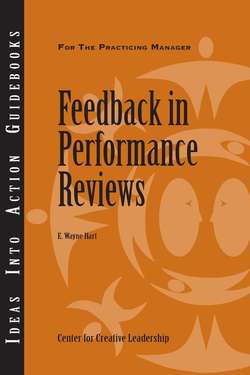Читать книгу Feedback in Performance Reviews - E. Wayne Hart - Страница 9
На сайте Литреса книга снята с продажи.
ОглавлениеReviewing Performance Reviews
At the Center for Creative Leadership, we often hear complaints about performance reviews. If an employee is meeting or exceeding expectations, reviews likely offer no substantial developmental direction. If an employee’s performance falls short of expectations, corrective advice typically focuses on specific tasks. Sometimes, issues are not honestly addressed or are totally avoided, clarity about needed improvement is not established, and support for change is absent. Often, developmental and performance goals are not differentiated, or one of the two will be absent from the review. Common employee complaints about performance reviews include the following:
• “It’s just a ritual; I don’t get anything out of it. We’re just checking off the boxes.”
• “I just agree with everything, wait for it to be over, and then go out and do the best I can.”
• “I never come out of the review feeling motivated.”
• “I was judged against goals that were never made clear to me in the beginning.”
Reviewers complain too. Their common complaints include the following:
• “I hate having to confront people on underperformance because they get upset or defensive.”
• “I think we have set corrections in motion, but then nothing changes.”
• “I know that either I am overly direct or I talk around the issue without really making the point.”
• “It feels more like combat than working together for everyone’s benefit.”
One remedy for these problems is effective feedback. In fact, effective feedback is one of the most important components of successful performance reviews. Quality performance review feedback engages the employee in the conversation, informs the employee as to why expectations and goals are set as they are, clarifies priorities, aids measurement of progress or regression, increases awareness of how the employee is perceived by others in the organization, and highlights the organizational results of the employee’s behavior.
In CCL’s work with organizational leaders and managers, we have found that giving effective feedback to others is one of the most important skills for any leader or manager to master. Often it is one of the most difficult skills to apply consistently and well. Many leaders and managers have told us that they would far rather receive feedback about themselves than give feedback to someone else. And most senior leaders indicate that they want more feedback than they receive; this problem is greater the higher in the organization the leader operates.
